Please note, links to all the Freedom Essays are included at the end of this essay. Open any essay to read, print, download, share or listen to (as an audio).
Freedom Essay 20
The genius of Transform Your Life
The particular genius of the short introductory booklet Transform Your Life And Save The World is its use of a series of propositions that, step-by-persuasive step, demonstrate how astronomically guilt-ridden the human race has to be after we became conscious and the resulting upset anger, egocentricity and alienation in us destroyed the paradise of our species’ original instinctive cooperative and loving soul’s world—and therefore, in the absence of understanding, how absolutely necessary it was that we contrived the patently false ‘savage instincts’ excuse for our divisive condition.
Comprising the speech Jeremy Griffith gave at the launch of his book
FREEDOM: The End Of The Human Condition at the Royal Geographical
Society in London in 2016, Transform Your Life And Save The World
is the recommended introduction to FREEDOM.
The series of propositions in Part 1 of this amazing booklet, that reveal our astronomical guilt and resulting desperate need to contrive an excuse for our competitive and aggressive condition, are as follows:
- The first proposition is to imagine that our distant ancestors did live in a cooperative, selfless and loving state.
- Then to imagine that becoming conscious did lead to us becoming competitive, selfish and aggressive.
- We should then be easily able to imagine that, having destroyed the paradise of our original all-loving existence, we (our conscious thinking self) would suffer from an astronomical sense of guilt.
- And from there we should be able to easily imagine that, in the absence of understanding of why we had destroyed paradise, we would be desperate to contrive some excuse for our competitive and aggressive behaviour.
The genius of this series of imaginings is that it provides a way for us to realise just how guilt-ridden we conscious humans might in fact be, and from there finally be able to see what has been driving our behaviour. It gives us a chance to bypass our defensive denials, that were explained in The Great Guilt that causes the Deaf Effect and Video/F. Essay 11, just long enough to see what might actually be behind the upset state of our human condition.
Suddenly we have the opportunity to see how desperate we have actually been to contrive an excuse for our divisive behaviour, and realise just how dishonest the ‘savage instincts’ excuse that we came up with actually is, and from there be able to appreciate and admit how truthful and precious the real ‘instinct v intellect’ explanation for our psychologically upset state is.
All we are asked to do is imagine certain events occurred; we are not being asked to accept that they occurred, the condemning implications of which could be too much to tolerate—our fear would block our access to the bigger picture and all the insight and relief on offer there. If all we have to do is just imagine certain events then that should not be an impossible undertaking, thus providing a path to real insight into our condition. And from there we should be able to recognise and appreciate the dishonesty of the biological excuse that our behaviour is no different to that seen in the animal kingdom; that we humans behave the way we do because we are victims of savage animal instincts that compel us to fight and compete for food, shelter, territory and a mate; that we are at the mercy of a biological need to reproduce our genes.
We should be able to appreciate and accept what was pointed out in Video/F. Essay 14, which is that the ‘savage instincts’ excuse cannot be the real cause of our competitive and divisive behaviour because firstly, as is explained in detail in F. Essay 21, we humans do have cooperative, selfless and loving moral instincts (the voice or expression of which within us is our conscience); and secondly, descriptions of human behaviour, such as egocentric, arrogant, inspired, cynical, depressed, deluded, etc, all recognise the involvement of our species’ unique fully conscious thinking mind—that there is a psychological dimension to our behaviour. Humans have suffered not from the genetic-opportunism-based, non-psychological animal condition, but the conscious-mind-based, PSYCHOLOGICALLY troubled HUMAN CONDITION.
So saying our behaviour results from having competitive, selfish and aggressive, must-reproduce-your-genes instincts like other animals simply does not stack up, it is not true; it’s just an excuse. But again, being able to see how astronomically guilt-ridden we conscious humans have been, we can appreciate that, in the absence of understanding, how fervently we have embraced that patently dishonest excuse.
With this overview in mind, what follows is a more detailed description of the sequence of propositions in Transform Your Life that reveal how horrifically guilt-ridden humans have been about our so-called ‘fall from grace’, and therefore how desperately in need of an excuse (no matter how ridiculous) we conscious humans have been—which should allow us to appreciate the human-race-transforming-and-saving real explanation of the human condition, which is presented in THE Interview and summarised in Video/F. Essay 3.
The Propositions
To start, let’s just imagine that it is true that our distant ancestors did live cooperatively and lovingly, the instinctive memory of which is our conscience—in other words, we are imagining that Charles Darwin was right when he said that ‘The moral sense perhaps affords the best and highest distinction between man and the lower animals.’ (par. 375 of FREEDOM)
Following that first step, imagine then that Plato, that greatest of all philosophers, was right when, long ago in 360 BC, he wrote of ‘our state of innocence, before we had any experience of evils to come, when we were…simple and calm and happy…pure ourselves and not yet enshrined in that living tomb which we carry about, now that we are imprisoned’, a time when we lived a ‘blessed and spontaneous life…[where] neither was there any violence, or devouring of one another [no sex as humans practice it now], or war or quarrel among them…And they dwelt naked, and mostly in the open air…and they had no beds, but lay on soft couches of grass’. (pars 158 & 170 of FREEDOM)
Similarly, let’s imagine that Plato’s Greek compatriot Hesiod was also right when, some 400 years before Plato, in his poem Works and Days he described our species’ cooperative and loving past: ‘When gods alike and mortals rose to birth / A golden race the immortals formed on earth…Like gods they lived, with calm untroubled mind / Free from the toils and anguish of our kind…Strangers to ill, their lives in feasts flowed by…They with abundant goods ’midst quiet lands / All willing shared the gathering of their hands.’ (par. 180 of FREEDOM)
And let’s then imagine that our mythologies and religions were also right; that, as the author Richard Heinberg summarised, ‘Every religion begins with the recognition that human consciousness has been separated from the divine Source, that a former sense of oneness…has been lost…everywhere in religion and myth there is an acknowledgment that we have departed from an original…innocence and can return to it only through the resolution of some profound inner discord…the cause of the Fall is described variously as disobedience, as the eating of a forbidden fruit [from the tree of knowledge], and as spiritual amnesia [forgetting, blocking out, alienation/psychosis].’ (par. 181 of FREEDOM) (Note, you can read many wonderful descriptions of this time of ‘innocence’ in our species’ past that Heinberg is talking about—like Plato’s and Hesiod’s descriptions above—in F. Essay 53.)
And that the philosopher Jean-Jacques Rousseau was right when he said about even some humans living today that ‘nothing is more gentle than man in his primitive state’ (par. 181)—and that the anthropologist C. Owen Lovejoy was correct in his summary of the evidence that anthropology has now revealed, which is that ‘our species-defining cooperative mutualism can now be seen to extend well beyond the deepest Pliocene [well beyond 5.3 million years ago]’. (par. 183 of FREEDOM)
From there, imagine that it is also true that primatological studies of bonobos (the variety of chimpanzee living south of the Congo river) reveal a great deal about how cooperative, selfless and loving our distant primate ancestors likely were. (The significance of bonobos is discussed further in F. Essay 21.)
To evidence this point, consider these astonishingly beautiful observations of bonobos—firstly, from filmmakers producing a documentary about them: ‘they’re surely the most fascinating animals on the planet. They’re the closest animals to man [in that they share 99 percent of our genetic make-up]. They’re the only animals capable of creating the same “gaze” as a human.’ And ‘Once I got hit on the head with a branch that had a bonobo on it. I sat down and the bonobo noticed I was in a difficult situation and came and took me by the hand and moved my hair back, like they do. So they live on compassion, and that’s really interesting to experience.’ (par. 418 of FREEDOM)
As the bonobo keeper Barbara Bell also observed, ‘Adult bonobos demonstrate tremendous compassion for each other…For example, Kitty, the eldest female, is completely blind and hard of hearing. Sometimes she gets lost and confused. They’ll just pick her up and take her to where she needs to go.’ And that ‘They’re extremely intelligent…They understand a couple of hundred words…It’s like being with 9 two and a half year olds all day’ and ‘They also love to tease me a lot…Like during training, if I were to ask for their left foot, they’ll give me their right, and laugh and laugh and laugh.’ (par. 451 of FREEDOM)
Researchers have also reported that ‘bonobos historically have existed in a stable environment rich in sources of food…and unlike chimpanzees have developed a more cohesive social structure’. For example, ‘up to 100 bonobos at a time from several groups spend their night together. That would not be possible with chimpanzees because there would be brutal fighting between rival groups.’ (par. 415 of FREEDOM)
These observations are amazingly similar—almost identical, in fact—to how Plato described our distant ancestors long before bonobos were even known of in Europe, which was that they ‘dwelt naked, and mostly in the open air…and they had no beds, but lay on soft couches of grass’. In Hesiod’s words, ‘They with abundant goods ’midst quiet lands / All willing shared the gathering of their hands.’
Bonobos’ unlimited capacity for love is also tangible in this truly amazing first-hand account from bonobo researcher Vanessa Woods: ‘Bonobo love is like a laser beam. They stop. They stare at you as though they have been waiting their whole lives for you to walk into their jungle. And then they love you with such helpless abandon that you love them back. You have to love them back.’ (par. 415 of FREEDOM)
And significantly, unlike other primate societies, bonobo society is matriarchal and focused on the nurturing of their infants, as this quote evidences: ‘Bonobo life is centered around the offspring. Unlike what happens among chimpanzees, all members of the bonobo social group help with infant care and share food with infants. If you are a bonobo infant, you can do no wrong…Bonobo females and their infants form the core of the group.’ (par. 416 of FREEDOM)
All these descriptions (and there are many more in chapter 5 of FREEDOM) provide powerful insights into how amazingly cooperative, selfless and loving the bonobo, our closest living relative, is. In fact, the following picture shows just how similar our species are, comparing as it does the skeleton of our early australopithecine ancestor (who lived between 3.9 and 3 million years ago) with the skeleton of a bonobo (chs 8:2 and 8:3 of FREEDOM).
Left side: Bonobo skeleton. Right side: Early australopithecine
(Drawing by Adrienne L. Zihlman from New Scientist, 1984)
On the back of these primatological insights, imagine then that the American philosopher John Fiske was right when, in 1874 (only a few years after Darwin published his seminal work, Origins), he proposed that it was through the nurturing of our infants that our distant primate ancestors acquired cooperative, selfless and loving moral instincts (nurturing like that which the bonobos practise). As is explained in F. Essay 21 and chapter 5 of FREEDOM, the reason nurturing can create a cooperative moral sense is that while the trait for nurturing is a selfish trait, as genetic traits have to be to survive and carry on, it has the appearance of being selfless. While the mother is selfishly reproducing her genes by fostering her infant, from the infant’s perspective, it is being treated unconditionally selflessly—the mother is giving her offspring food, warmth, shelter, support and protection for apparently nothing in return. So it follows that if the infant can remain in infancy for an extended period and be treated with a lot of seemingly altruistic love, they will be indoctrinated with that selfless love and grow up to behave accordingly. Of course, being semi-upright from living in trees, and thus having their arms free to hold a dependent infant, primates are especially facilitated to develop this nurtured, loving, cooperative nature. So yes, imagine that it was entirely appropriate that Fiske’s nurturing theory for the origin of our moral nature was described at the time as being ‘far more important’ than ‘Darwin’s principle of natural selection’ and ‘one of the most beautiful contributions ever made to the Evolution of Man’ and resulted in Darwin himself going so far as to write to Fiske saying, ‘I never in my life read so lucid an expositor (and therefore thinker) as you are’. (par. 488 of FREEDOM)
With all this in mind, imagine that it was the emergence of our conscious mind (which, as explained in F. Essay 24 and chapter 7 of FREEDOM, an environment of unconditional selflessness or love liberated the development of) that caused our species to depart from that original all-loving, all-sensitive, completely happy and cooperative idyllic state—that it was, as Heinberg wrote, ‘human consciousness’ that ‘separated’ us ‘from an original…innocence’. And imagine therefore that Shakespeare was right when he acknowledged how seemingly destructive and stupid we marvellously conscious humans are, writing ‘What a piece of work is a man! How noble in reason! How infinite in faculty!…In action how like an angel! In apprehension how like a god! The beauty of the world! The paragon of animals! And yet, to me, what is this quintessence of dust? [Brutal and barbaric] Man delights not me.’ And that the philosopher Blaise Pascal was similarly precise in his damning observation: ‘What a chimera then is man! What a novelty, what a monster, what a chaos, what a contradiction, what a prodigy! Judge of all things, imbecile worm of the earth, repository of truth, a sewer of uncertainty and error, the glory and the scum of the universe!’ (par. 49 of FREEDOM).
Shakespeare’s and Pascal’s denunciations of our conscious mind certainly leave no doubt as to their views on the difficulty of understanding the immense contradictions for us conscious humans of being so brilliantly clever yet behave in such a seemingly unclever brutal and destructive way that we appear to be complete idiots! So next imagine that science writer Roger Lewin was also right when, in commenting about how confronting and depressing the subject of consciousness is, he said that to ‘illuminate the phenomena of consciousness’ is ‘a tough challenge…perhaps the toughest of all’. And that philosopher René Descartes’ reaction when he too tried to ‘contemplate consciousness’—that ‘So serious are the doubts into which I have been thrown…that I can neither put them out of my mind nor see any way of resolving them. It feels as if I have fallen unexpectedly into a deep whirlpool [of utter depression]’—was completely understandable given what a destructive force consciousness has appeared to be. (par. 624 of FREEDOM)
Yes, when taking into account the cooperative, selfless and loving nature of our species’ instinctive past, how extremely ashamed of our conscious mind’s seeming destruction of that state must we be!
At this point, Transform Your Life goes on to argue that if all these imaginings are right (and with our conscious mind now defended, yes DEFENDED, by the true explanation for our corrupted state, you should be able to admit that these imaginings are, in fact, all true), namely that our distant ape ancestor lived completely cooperatively, selflessly and lovingly and then we became fully conscious and, for a reason unbeknownst to ourselves, we began to behave competitively, selfishly and aggressively, then how absolutely terrible a predicament must that have been! Instead of being loving, cooperative and gentle, humans had developed a propensity for shocking deeds of violence, depravity, indifference and cruelty. For some reason we had turned into seemingly evil monsters—sufferers of the conscious-mind-based human condition.
So it makes complete sense that the astronomical guilt associated with trying to think about and confront the truth of the horror of our corrupted or ‘fallen’ conscious-mind-induced human condition has been so great that we could only cope with it by not coping with it, by adopting all manner of dishonest denial—basically by blocking out all memory of our species’ cooperative, selfless and loving past and any thoughts about how corrupted we as a species had become since we gained a conscious, thinking mind. We didn’t want to admit our species once lived cooperatively, selflessly and lovingly, and we didn’t want to face the issue of the human condition. Plato’s famous description of ‘our human condition’ (and, yes, he used the term ‘human condition’) in which he depicted humans as having to ‘take refuge’ ‘a long way underground’ in a dark ‘cave’ because they couldn’t face the ‘painful’ ‘light’ of the truth of ‘the imperfections of human life’, is, in fact, a deadly accurate portrayal of this inability to cope with our species’ corrupted reality—of how deeply resigned we humans have become to living in denial of the issue of the human condition. (Plato’s cave analogy is explained more fully in Video/F. Essay 11.) Yes, trying to confront the issue of the human condition while we couldn’t properly explain it only led to the ‘deep whirlpool’ of utter depression Descartes described, so best not allow your mind to go anywhere near that line of thought!
But in the face of such pain and condemnation, denial alone wasn’t enough. What we desperately needed to come up with was an excuse for our corrupted condition that would relieve ourselves of the excoriating and suicidally depressing truth that our conscious mind had seemingly wrecked paradise.
And so it was at this point that we fervently embraced the aforementioned relieving excuse for our behaviour, namely that other animals are always fighting and competing and tearing each other’s throats out, and so ‘That’s why we’re competitive, selfish and aggressive—we too have savage animal instincts that compel us to compete for food, shelter, territory and a mate’. Despite knowing full well that we have a cooperative, selfless and loving moral instinctive nature that can only have been derived from a time when we lived cooperatively, selflessly and lovingly, and therefore that it is patently untrue that we have a savage competitive, selfish and aggressive ancestry, our fear of suicidal depression was so great that we gratefully and determinedly embraced the lie that our distant ancestors were brutish and aggressive. Our conversations are saturated with the ‘savage instincts’-based reason for our human-condition-afflicted behaviour, with comments like: ‘We are programmed by our genes to try to dominate others and be a winner in the battle of life’; and ‘Our preoccupation with sexual conquest is due to our primal instinct to sow our seeds’; and ‘Men behave abominably because their bodies are flooded with must-reproduce-their-genes-promoting testosterone’; and ‘We want a big house because we are innately territorial’; and ‘Fighting and war is just our animal nature expressing itself’; and ‘Religions are merely manifestations of our survival-driven group mentality’. Further, we whole-heartedly embraced the idea that the task then of our uniquely conscious mind was to try to control these supposed brutal, savage instincts within us.
AdobeStock; jeaneeem / Flickr
It was an absolutely brilliant excuse because instead of our instincts being all-loving and thus unbearably condemning of our present non-loving state, they were made out to be vicious and brutal; and, instead of our conscious mind being the cause of our corruption, which it actually was, it was made out to be the blameless mediating ‘hero’ that had to manage those supposed vicious instincts within us! Rather than our instincts being good and our conscious mind bad, our instincts were made out to be bad and our intellect to be good, which, while fabulously relieving, was in-effect a complete reverse of the truth lie!
While it’s fully understandable that we humans had to invent—and then resign ourselves to believing in—an excuse to cope with our diabolically corrupted, soul-devastated condition, the tragic outcome is that biology, and the human race that depends on its findings for clarifying understanding of our behaviour, is now festering in a cesspit of human-condition-avoiding, mechanistic, reductionist dishonest biological crap; it is living ‘deep underground’ in Plato’s metaphorical ‘cave’ of darkness.
In fact, if the redeeming and psychologically rehabilitating, teleological, non-mechanistic true explanation of the human condition hadn’t arrived to liberate humans from Plato’s ‘cave’ of terrible darkness from practising so much dishonest denial, the alienation or separation from our true self or soul, or psychosis, that results from that denial would only have continued to increase, so that very soon the human race would have succumbed to an absolutely horrific psychotic state of terminal alienation. (See F. Essay 55: Endgame for the human race.)
At this point in Part 1 of the booklet Transform Your Life, some of the dishonest biological ‘explanations’ for human behaviour that developed from this basic lie that our ancestors were competitive and aggressive savages are summarised. This dishonest biology is described at length in Jeremy Griffith’s booklet Death by Dogma: The biological reason why the Left is leading us to extinction, and the solution, which is freely available on our homepage HumanCondition.com, as one of the WTM’s six key books. In Death by Dogma Jeremy explains how some left-wing biologists countered the selfishness-justifying implications of the ‘savage instincts’ excuse by developing equally dishonest theories alleging we have both selfish and selfless instincts (which essentially still hold that selfish instincts are controlling our lives); and in the case of the left-wing political theorist Karl Marx and Marxist-based Critical Theory, Jeremy explains how they maintain that we only have some basic instinctive needs such as for sex, food, shelter and clothing, and that essentially we are born a ‘blank slate’ in terms of having instincts influencing our behaviour, and as a result our mind can be inscribed at will! However, what is presented in Transform Your Life is accurate, which is that the prevailing dishonest belief is that savage, must-reproduce-our-genes, selfish instincts are controlling our lives.
What is also described in Death by Dogma is how embedded and extremely dangerous dishonest biology has become, and therefore how precious the truthful, psychosis-acknowledging-and-solving explanation of the human condition is—which is what Part 2 of Transform Your Life presents, before explaining in Part 3 how this true explanation of the human condition is able to end the upset state of the human condition and bring about the transformation of the human race.
- - - - - - - - - - - - - - - - - -
We highly recommend you read, and share with others, Transform Your Life And Save The World—Part 1: The Dishonest Biology, Part 2: The Truthful Biology, and Part 3: The Resulting Transformation Of The Human Race. We also recommend F. Essay 53, or its condensation, F. Essay 4, for a description of how other thinkers throughout history have recognised that it was the clash between our instinct and intellect that produced the human condition. Also, as mentioned, F. Essay 53 has a collection of wonderful descriptions of our species’ past time in innocence.
Discussion or comment on this essay is welcomed—see below.
Please Note, if you are online you can read, print, download or listen to (as a podcast) THE Interview, The Great Guilt, The Great Transformation, Sermon On The Beach or any of the following Freedom Essays by clicking on them below.
INTRODUCTION TO THE EXPLANATION & RESOLUTION OF THE HUMAN CONDITION: THE Interview That Solves The Human Condition And Saves The World! | The Great Guilt that causes the Deaf Effect | The Great Transformation: How understanding the human condition actually transforms the human race | Sermon On The Beach | Freedom Essay 1 Your block to the most wonderful of all gifts | 2 The false ‘savage instincts’ excuse | 3 THE EXPLANATION of the human condition | 4 The ‘instinct vs intellect’ explanation is obvious – short | 5 The transformation of the human race | 6 Wonderfully illuminating interview | 7 Praise from Prof. Prosen | 8 “How this ends racism forever” | 9 “This is the real liberation of women” | 10 What exactly is the human condition? | 11 The difficulty of reading FREEDOM and the solution | 12 One hour summarising talk | 13 The WTM Deaf Effect Course | 14 Dishonest biology leads to human extinction | 15 How your life can immediately be transformed | 16 The Shock Of Change | THE BOOKS: 17 Commendations & WTM Centres | 18 FREEDOM chapter synopses | 19 FREEDOM’s significance by Prof. Prosen | 20 The genius of Transform Your Life | THE OTHER KEY BIOLOGICAL EXPLANATIONS: 21 How did we humans acquire our altruistic moral conscience? | 22 Fossil discoveries evidence our nurtured origins | 23 Integrative Meaning or ‘God’ | 24 How did consciousness emerge in humans? | 25 The truthful biology of life | • Survey seeking feedback | MEN & WOMEN RECONCILED: 26 Men and women reconciled | 27 Human sex and relationships explained | THE END OF RACISM: 28 The end of racism | 29 Can conflict ever end? | RESIGNATION: 30 Resignation | 31 Wordsworth’s all-revealing great poem | MORE ON THE TRANSFORMATION: 32 More on the Transformation | 33 Jeremy on how to become transformed | THE END OF POLITICS: 34 This understanding ends the polarised world of politics | 35 Death by Dogma left-wing threat | 36 Saving Western civilisation from left-wing dogma | 37 The meaning of superhero and disaster films | RELIGION DECIPHERED: 38 Noah’s Ark explained | 39 Christ explained | 40 Judgment Day finally explained | 41 Science’s scorn of religion | MEANING OF ART & CULTURE: 42 Cave paintings | 43 Ceremonial masks explained | 44 Art makes the invisible visible | • Second survey seeking feedback | 45 Prophetic songs | 46 Anne Frank’s faith in human goodness fulfilled | 47 Humour and swearing explained | 48 R.D. Laing’s fearless honesty | ABOUT BIOLOGIST JEREMY GRIFFITH: 49 Jeremy’s biography | 50 Australia’s role | 51 Sir Laurens van der Post’s fabulous vision | 52 Jeremy’s children’s book A Perfect Life | 53 The ‘instinct vs intellect’ explanation is obvious – long | 54 The accusation of hubris | DO WE FAIL OR DO WE MAKE IT? 55 Endgame for the human race | 56 Why there have been ferocious attacks on the WTM | 57 Magnificence of the Transformed State – video 1 | 58 Magnificence of the Transformed State – video 2 | MARKETING: 59 Shouldn’t the WTM’s website be toned down? | 60 The crime of ‘ships at sea’ ‘pocketing the win’ | GENERAL DISCUSSIONS BY JEREMY: 61 General Discussion by Jeremy Aug. 2018 | 62 Jeremy’s Masterpiece Presentation Feb. 2019 | HEALTH & HEALING: 63 Pseudo therapy/healing | 64 Real therapy/healing | From here on are Transformation Affirmations and More Good Info Emails
These essays were created in 2017-2024 by Jeremy Griffith, Damon Isherwood, Fiona Cullen-Ward, Brony FitzGerald & Lee Jones of the Sydney World Transformation Movement Centre. All filming and editing of the videos was carried out by Sydney WTM members James Press & Tess Watson during 2017-2024. Other members of the Sydney WTM Centre are responsible for the distribution and marketing of the videos/essays, and for providing subscriber support.

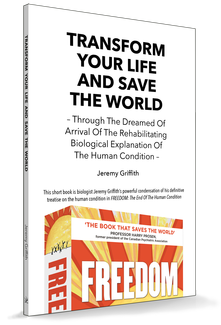





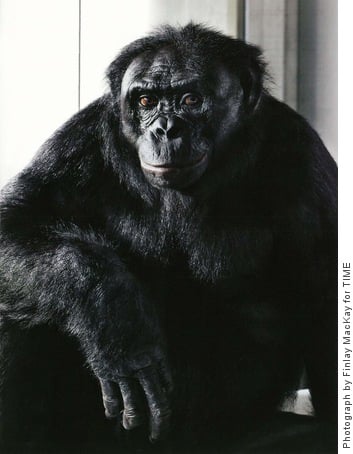
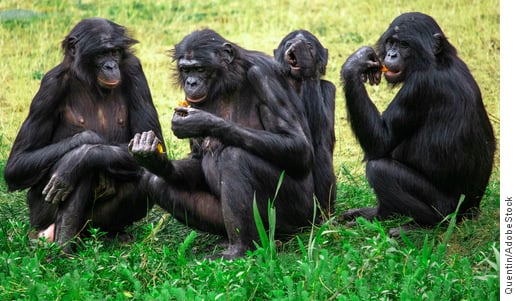
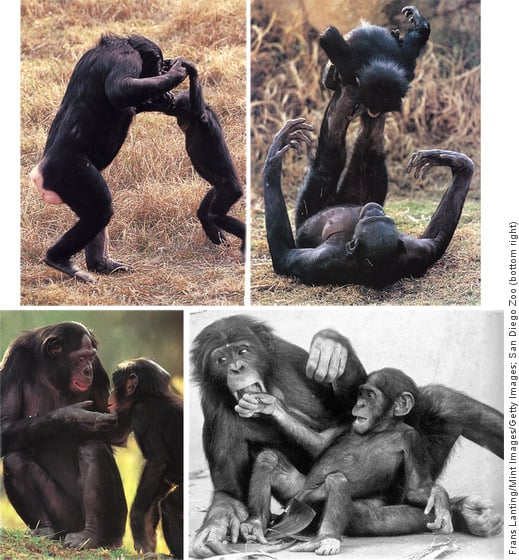
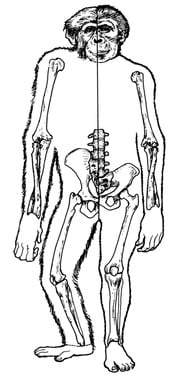
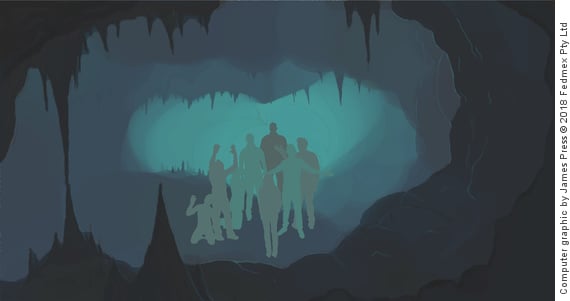

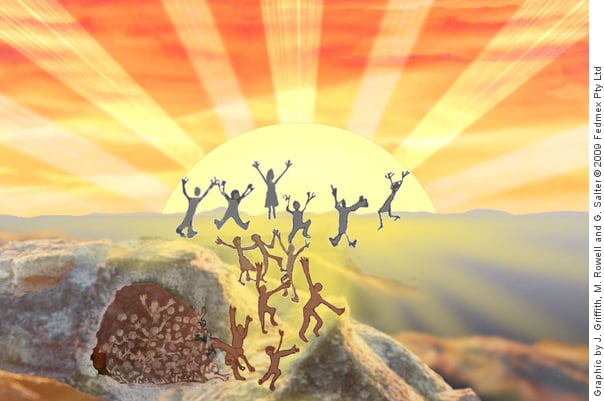

Please wait while the comments load...
Comments